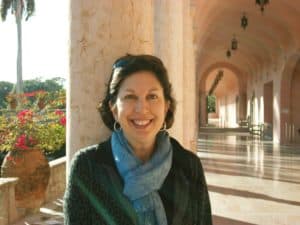Rita Ciresi
The Middlepause: On Life After Youth, by Marina Benjamin, Catapult Books: 2016
British journalist Marina Benjamin chooses a quote from Colette for the epigraph of The Middlepause: “Look for a long time at what pleases you, and longer still at what pains you.” Benjamin does just that in this memoir that explores how a hysterectomy performed when she was forty-nine abruptly threw her into menopause.
No doubt Benjamin’s jaded view of what she calls “the middlepause” might have been slightly rosier if she had evolved into it “naturally.” But as it stands, Benjamin takes a relentlessly grim view of the female ageing process, perhaps made even grimmer by the fact that her own daughter reaches puberty right at the time that her own candle seems to sputter and go out.
“I entered middle age all at once,” writes Benjamin. “There was no real menopausal process, only a Before and After. . . Aging has punched [me] in the face like a thug.” She describes menopause as being “ambushed and laid bare,” “a subtraction,” and being “eclipsed” and “past ripe.” Looking in the mirror, she sees herself as “all hard angles, sagging pouches, and knobby joints. My complexion has become grayish and my hair is lackluster with the buildup of permanent dye.”
Part of me found it refreshing to hear a woman bemoan growing older with complete honesty. The other part of me wanted to holler, Whoa, Nellie! If you feel this lousy about yourself at forty-nine, how are you going to feel when you’re sixty? Seventy? Eighty, if you’re lucky enough to make it that far? Many readers, I believe, will have a similar seesaw reaction to this memoir–alternately embracing and rejecting Benjamin’s candid look at ageing.
A woman who feels “tarnished as an old coin, and worn–worn down and worn out” by age fifty probably needs a good pep talk. Benjamin attempts to give herself one by turning to wellness books, which she eventually ends up scorning. Two women who come under her wrath are “the high priestess of female self-help, Dr. Christiane Northrup, M.D.,” who has made her career selling menopause as a gift to older women (pardon me: goddesses), and Fifty & Fabulous! author Jaki Scarcello, who dubs us older gals “Women of the Harvest” (evoking, for Benjamin, a creepy Wiccan cult).
Again, it’s hard not to semi-relish Benjamin’s sideswipes at these feel-good cultural gurus. But on the other hand, it seems unfair to take a dig at the millions of women who want to feel like goddesses and who are trying to stay positive about the ageing process, rather than bemoan it as a “falling” or even a “collapse.”
What redeemed this memoir, for me, was a description of how Benjamin lost a dear friend, Kirsty Milne, to lung cancer, and how she and five friends known as “The Calvary” gathered to commemorate their friend every year. If this poignant chapter had come earlier in the book, readers might understand how and why Benjamin feels the middlepause as a precursor to death. As it stands, we have to wait until almost the end of the memoir to understand that her friend’s untimely passing functions as an additional trigger for why Benjamin describes ageing in such dire terms.
The Middlepause is a hard read, but an important book, and one that I would recommend to any woman aged forty and up.
• • •
 Rita Ciresi is author of the novels Bring Back My Body to Me, Pink Slip, Blue Italian, and Remind Me Again Why I Married You, and two award-winning story collections, Sometimes I Dream in Italian and Mother Rocket. Her collection of flash fiction, Second Wife, is winner of the Jeanne Leiby Chapbook Competition and will be published in 2018 by Burrow Press. She is professor of English at the University of South Florida, a faculty mentor for the Bay Path University MFA program in creative nonfiction, and fiction editor of 2 Bridges Review.
Rita Ciresi is author of the novels Bring Back My Body to Me, Pink Slip, Blue Italian, and Remind Me Again Why I Married You, and two award-winning story collections, Sometimes I Dream in Italian and Mother Rocket. Her collection of flash fiction, Second Wife, is winner of the Jeanne Leiby Chapbook Competition and will be published in 2018 by Burrow Press. She is professor of English at the University of South Florida, a faculty mentor for the Bay Path University MFA program in creative nonfiction, and fiction editor of 2 Bridges Review.